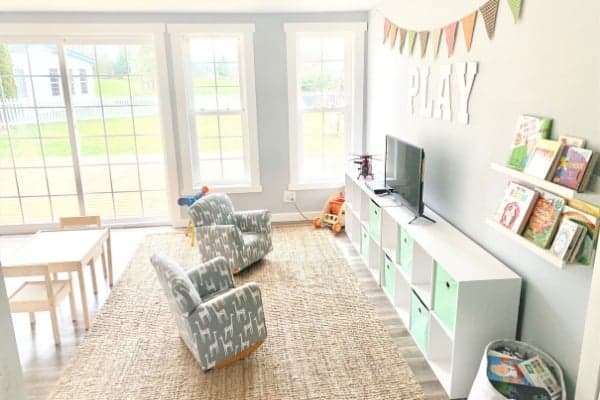Undertaking a home improvement project is an exciting endeavor that can significantly enhance the functionality and aesthetic appeal of your living space. However, it’s crucial to approach these projects with a detailed plan and a clear budget in mind, especially given the substantial investment they can require. For example, in Charlotte, NC, the average cost to remodel a kitchen ranges from $100,000 to $160,000, highlighting the financial commitment involved. Understanding these costs and preparing in line with them is essential for a successful renovation that meets your expectations without breaking the bank.
This guide aims to provide you with six practical tips to navigate the complexities of home improvement, ensuring a smooth process from start to finish.
-
Choosing the Right Professionals:
When it comes to specialized home improvement projects, such as bathroom remodeling, the expertise of professionals is invaluable. Engaging a reputable bathroom remodeling company in Charlotte can make a significant difference in the outcome of your project. These experts bring a wealth of knowledge regarding efficient layouts, high-quality materials, and the latest design trends, ensuring your renovated space is both beautiful and functional.
Selecting the right contractor involves thorough research and due diligence. Look for a company with a strong track record, positive customer reviews, and a portfolio that aligns with your aesthetic preferences. A reliable Charlotte bathroom remodeling company will not only execute your vision but also provide insightful recommendations and manage the complexities of the project, ensuring a seamless and stress-free renovation experience.
-
Detailed Planning and Design:
The foundation of a successful home improvement project lies in meticulous planning and thoughtful design. This initial phase should involve defining your goals, envisioning the final result, and mapping out each step of the process. Whether you’re aiming for a complete overhaul or targeted updates, having a clear plan helps ensure that every aspect of the project aligns with your vision and objectives.
In addition to conceptualizing the design, consider the practicality and functionality of your space. It might involve optimizing the layout for better flow, selecting durable materials that complement your lifestyle, or incorporating energy-efficient solutions. Detailed planning not only helps avoid costly mid-project changes but also ensures that the finished space will meet your long-term needs and preferences.
-
Realistic Budgeting:
Creating a realistic budget is critical to the success of your home improvement project. Begin by itemizing all potential expenses, including materials, labor, permits, and any additional fees that may arise. Don’t forget to allocate a contingency fund to cover unexpected costs, as surprises are not uncommon during renovations. A comprehensive budget provides a financial roadmap, helping you make informed decisions and prioritize spending throughout the project. Keep specifics in mind, such as this dumpster weight estimator.
Monitoring your expenses as the project progresses is equally important. Regularly comparing actual costs to your budget can help identify any discrepancies early on, allowing you to adjust plans or reallocate funds as needed. Staying on top of your finances throughout the renovation process helps prevent overruns and ensures that your project stays within the financial boundaries you’ve set, ultimately leading to a more satisfying and stress-free renovation experience.
-
Acquiring Necessary Permits:
Understanding and obtaining the necessary permits is a crucial step that should never be overlooked in any home improvement project. Permits ensure that your renovations comply with local building codes and standards, safeguarding the safety and legality of the work. The process might seem daunting, but it’s essential for avoiding potential legal issues or complications that could arise if the work doesn’t adhere to local regulations.
Begin by consulting with your hired professionals or the local building authority to determine which aspects of your project require permits. It could vary from structural changes to electrical or plumbing work. Acquiring the right permits might involve submitting detailed plans and undergoing inspections, but it’s a critical step for ensuring your project is executed properly and up to code. Not only does this protect you legally, but it also ensures the safety and durability of your improvements, adding value to your home in the long run.
-
Quality Materials and Workmanship:
The longevity and success of your home improvement project significantly depend on the quality of materials and workmanship. Opting for high-quality materials can enhance the appearance, functionality, and durability of your renovated space. While it might be tempting to cut costs by choosing cheaper options, investing in quality can save you money in the long term by reducing the need for repairs and replacements.
Similarly, skilled workmanship is crucial for bringing your vision to life and ensuring the structural integrity of your improvements. Whether it’s a contractor, a plumber, or an electrician, make sure you hire experienced professionals who take pride in their work. Don’t hesitate to ask for references or portfolios to assess their expertise. Remember, the right team can make a significant difference in the outcome of your project, ensuring that every detail is executed with precision and care.
-
Effective Communication and Oversight:
Maintaining open and effective communication with your contractors and design team is key to the success of your home improvement project. Regular check-ins and being clear about your expectations can help ensure that everyone is on the same page and that the project progresses smoothly. Don’t hesitate to ask questions or raise concerns; it’s better to address issues as they arise rather than after the project is completed.
Oversight is equally important. While you don’t need to micromanage professionals, staying informed and involved in the process allows you to catch potential issues early and make necessary decisions quickly. Whether it’s a change in materials, a design adjustment, or a scheduling conflict, being proactive and engaged can help keep your project on track and aligned with your vision.
Conclusion
Successfully executing a home improvement project requires careful planning, collaboration with the right professionals, and active involvement from start to finish. By choosing the right team, planning meticulously, budgeting realistically, obtaining necessary permits, insisting on quality materials and workmanship, and maintaining effective communication and oversight, you can navigate the renovation process smoothly. These steps not only ensure that your project aligns with your vision but also enhance the functionality, beauty, and value of your home, allowing you to enjoy the fruits of your labor for years to come.





